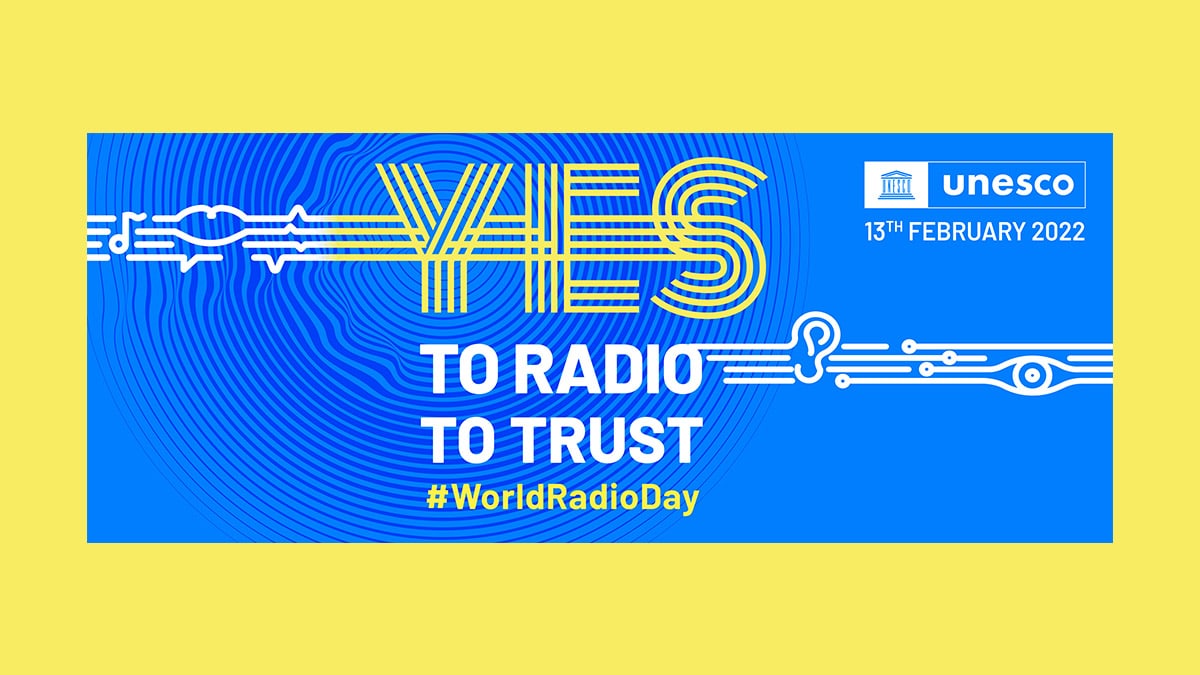PARIS — The theme for the 11th World Radio Day, which takes place on Feb. 13, is “Radio and Trust.” It’s a timely theme because radio has faced increasing competition from social media for listeners’ attention for the last 10 years. Radio has adapted, though, because it commands the trust of listeners. Events of the last two years have proven that.
One of the biggest challenges for countries dealing with the COVID-19 pandemic has been misinformation about the virus and the pandemic spread on social media, at times amplified by unscrupulous or misguided public figures. The pandemic also brought severe disruptions to global business, reflected in accelerated declines in news media revenue. Combined at times with limited professional and technical capacities, this has made the production of trustworthy information increasingly difficult, particularly for local media outlets in developing countries.
However, while studies reveal a significant global fall of trust in the internet and social media networks, the European Broadcasting Union’s Trust in Media report 2021 indicates that European citizens trust radio more than any other media. It is a trust that should be celebrated and harnessed; hence the main objective of World Radio Day 2022 is to promote that radio is one of the world’s most trusted media.
Sub-Themes
There are three main sub-themes for this year’s World Radio Day, and trust is central to all three. The first is trust in radio journalism. Stations must reinforce professional standards to maintain trust in radio. They should raise awareness about the importance of fact-checking, unbiased reporting, the use of reliable sources and independence from political, ideological or business pressures when competing for market and audience share. And they should broadcast this.
For any radio station to develop and maintain trust — whether in its journalism, in ensuring accessibility or for a station’s viability — demands confronting some challenging questions.
For radio journalism to keep listeners’ trust, it must be credible and show how they contribute to democracy and the rule of law. Media independence, freedom and pluralism are essential, as well as diversity in all its forms: staff, sources, formats, distribution channels and editorial content.
Diversity is tied to the second “Radio and Trust” sub-theme: trust and accessibility. If radio is to build on the trust it currently commands, it needs to encourage the development of radio accessibility, particularly for people with disabilities, through good practices sharing and fostering innovation in content creation and delivery.
Importantly, radio needs to be seen as doing this. Radio stations today need to think of traditional radio broadcasting as part of a portfolio of offerings and seek ways to use technology to cater to visually- or hearing-impaired people.
The third sub-theme — trust and viability of radio stations — links the economic survival of radio stations to their ability to attract and retain a large enough base of listeners to be sustainable. This can be achieved by engaging with listeners and using media and information literacy shows to help listeners appreciate quality journalism and counter disinformation.
Challenging Questions
It’s about stations embedding listener interaction into their business models. There also seems to be a lack of public awareness of the financial challenges faced by radio stations and the news media outlets in general, which may affect radio stations’ independence and pluralism. If radio stations are to remain viable, they need to build and maintain the trust of their listeners.
For any radio station to develop and maintain trust — whether in its journalism, in ensuring accessibility or for a station’s viability — demands confronting some challenging questions: How does the station deal with the audience’s concerns? How does it handle complaints in general, and how does it address an editorial content complaint in particular? What actions does it take to engage with the listener actively? How does it deal with the protection of privacy and intellectual property issues? Does it broadcast programs that empower the listener? Does it broadcast programs that empower the listener’s media and information literacy skills? Does it explain how it determines what is in the public interest? Does its broadcast staff respect the rights to freedom of expression? Does it advocate for strengthened gender equality and representation of minority or under-served groups at all levels?
World Radio Day came into being in 2011 because UNESCO’s member states recognized that radio is a powerful medium for celebrating humanity in all its diversity and constitutes a platform for democratic discourse. That power demands responsibility and accountability, and trust is key to both.
The author is chief, Media Development and Media and Information Literacy at UNESCO.

